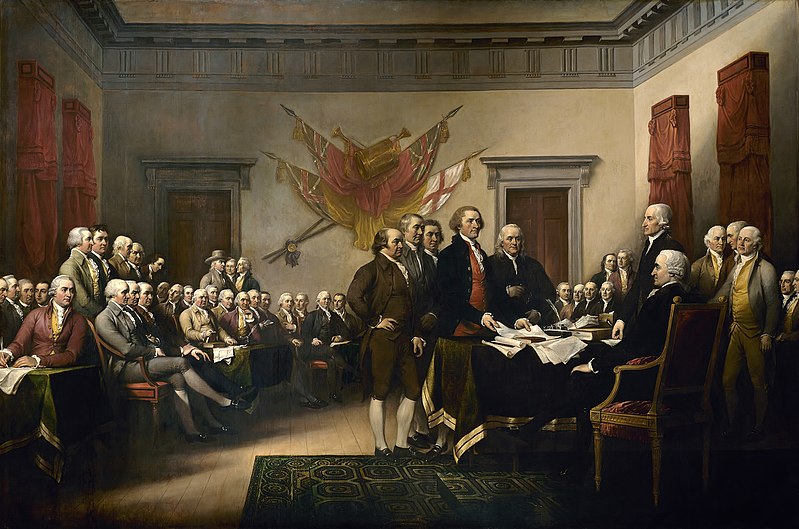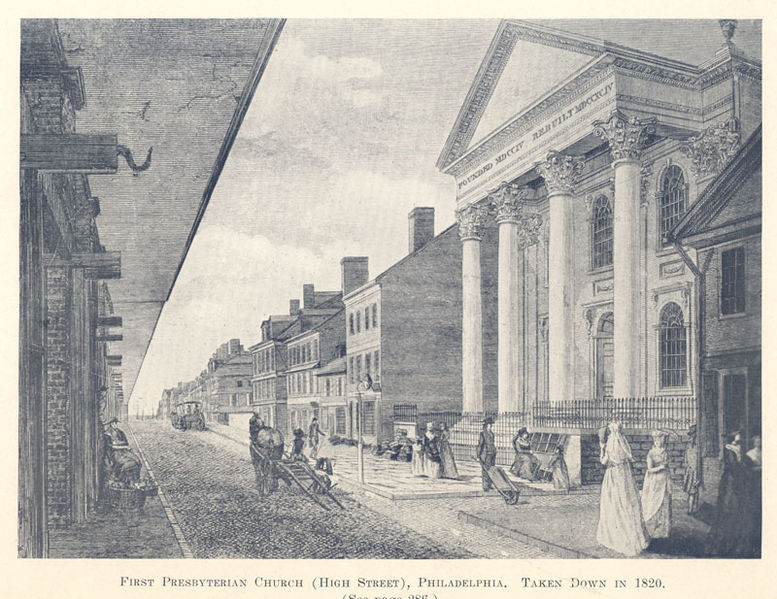A WORD TO SENATORS ABOUT PUBLIC TRUST
Public trust that you will tell the truth and seek the truth, no matter where it leads, was already dangerously low. Although we know that it is your constitutional right to set the rules for an impeachment trial, the American people know that a “trial” without witnesses and evidence is not a trial. Those still paying attention knew how it would end. Majority Leader McConnell told us. Some of us have stopped watching because we don’t care anymore. Others care but have tuned out to manage their blood pressure and keep their dinners down. We all could use an infusion of wisdom to guide us through this national crisis.
JOHN WITHERSPOON and JAMES MADISON
I write as a pastor in the tradition of John Witherspoon. Witherspoon was the only religious leader to sign the Declaration of Independence, whose moral philosophy influenced James Madison, the Founding Father of the U.S. Constitution. As President of The College of New Jersey (Princeton), Witherspoon taught moral philosophy. James Madison and other students took Witherspoon’s “Common Sense” philosophy of public morality into the courtrooms of 37 judges (including three Supreme Court justices), and onto the floors of the Continental Congress (12), the U.S. House of Representatives (49), and the United States Senate (28 Senators) where you now serve.
THE CONSTITUTION AND PRELIMINARY PRINCIPLES
In 1787 John Witherspoon participated in two simultaneous national meetings within four blocks from each other in Philadelphia. At Independence Hall the Continental Congress was preparing the U.S. Constitution. Down the street, the first national assembly of the Presbyterian Church in the Unites States of America was adopting the “Preliminary Principles” to guide the church through times of divided opinion and disharmony. There are eight (8) Preliminary Principles. I lift up for your attention the First (conscience) Fourth (truth) , and Fifth (mutual forbearance) Preliminary Principles.
PRINCIPLE: CONSCIENCE
“God alone is Lord of the conscience…” — First Preliminary Principle (1787)
One morning Henry Ward Beecher cut himself shaving. He didn’t like what he saw in the mirror. The public man and the private man were at odds. Public scandal and conscience formed the razor’s edge that cut through his defenses.
Everything hinges on the right and duty of conscience. One need not believe in God to avow the primacy of conscience.
The tight internal discipline and uniformity of the GOP caucus against calling witnesses and admitting evidence in the impeachment trial looks no different from the enforced cohesiveness of the Mafia, the Gangster Disciples, and other street gangs. Step out of line and you’re “going to go through some things.” Courage and conscience are not part of the code. Compliance and scheming have taken their place. We, the people, lose hope watching the gang-banging in the highest places of authority and power.
PRINCIPLE: TRUTH AND GOODNESS
“Truth is in order to goodness….” — Fourth Preliminary Principle (1787)
Truth-telling and truth-seeking are essential building blocks of a good society. The road to goodness is not falsehood, misinformation, disinformation, and concealment. Without truth-telling and truth-seeking we become a society built on quicksand.
“The Fourth Principle continues:
“No opinion can be either more pernicious or absurd, than that which brings truth and falsehood upon a level, and represents it as of no consequence what a man’s (sic) opinions are.” — Fourth Preliminary Principle (1787)
Some opinions are pernicious (highly injurious or destructive: deadly). Others are simply absurd (ridiculous, silly, incredible). Some opinions are both. The exercise of one’s duties by means of falsehood is injurious to goodness. Truth is the plumb line against which an opinion is tested. Truth matters. Falsehood matters. Facts matter. Reality matters. There is no such thing as an alternative facts.
“On the contrary, we are persuaded, that there is an inseparable connection between faith and practice, truth and duty. Otherwise, it would be of no consequence either to discover truth, or to embrace it.” — Fourth Preliminary Principle (1787 –)
There is a direct connection between truth-telling, truth-seeking, and public life. The connection is essential for a civil society. When partisan interests displace truth and conscience, the result is a society with neither a moral code nor a functional Constitution. Watching the Senate impeachment trial tells a different story to the American people: power trumps principle.
PRINCIPLE: MUTUAL FORBEARANCE
“There are truths and forms with respect to which [people] of good characters and principles may differ. And in all these we think it the duty both of private Christians and societies, to exercise mutual forbearance towards each other.” — Fifth Preliminary Principle (1787)
‘Forbearance’ — i.e., patience, tolerance, continuing in relationship — is no longer a household word in 2020. Neither is it frequently practiced. Mutual forbearance is rarer still. Mutual forbearance is essential to achieving E pluribus unum (i.e. “one out of many), which Cicero saw as basic to relational bonds and thriving societies and states.
If God alone is Lord of the conscience, those who differ with respect to those “truths and forms” that are not universally accepted, i.e. political philosophy, owe it to each other and to the body politic to continue in respectful, peaceful relationship.
WHAT IS AT STAKE IN THE IMPEACHMENT TRIAL?
Mutual forbearance with people of good character and principles is embedded in the history of the Senate. But your good character is on trial. The impeachment trial is a test of the Senate’s conscience, commitment to truth and goodness, character and principles, and mutual forbearance. The great institution in which you are privileged to serve, and a general population that expects a trial to be a trial are at stake in your decisions. The Senate’s good character and principles, as well as Donald Trump’s, is on trial in the court of public opinion. Those who know their history can hear a long shout from James Madison and John Winthrop:
“Sham on you!”
— Gordon C. Stewart, author of Be Still! Departure from Collective Madness (2017 Wipf & Stock), Chaska, MN, February 3, 2020.



